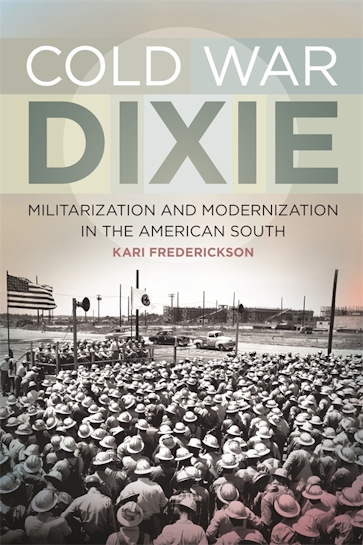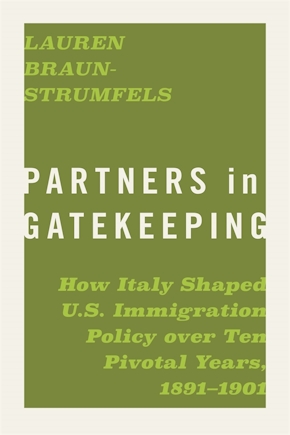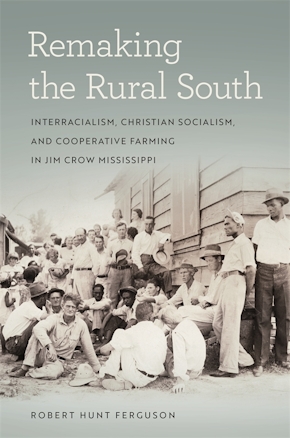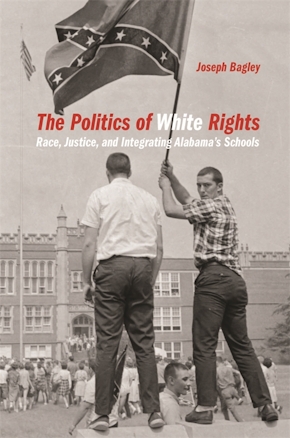Focusing on the impact of the Savannah River Plant (SRP) on the communities it created, rejuvenated, or displaced, this book explores the parallel militarization and modernization of the Cold War-era South. The SRP, a scientific and industrial complex near Aiken, South Carolina, grew out of a 1950 partnership between the Atomic Energy Commission and the DuPont Corporation and was dedicated to producing materials for the hydrogen bomb. Kari Frederickson shows how the needs of the expanding national security state, in combination with the corporate culture of DuPont, transformed the economy, landscape, social relations, and politics of this corner of the South. In 1950, the area comprising the SRP and its surrounding communities was primarily poor, uneducated, rural, and staunchly Democratic; by the mid-1960s, it boasted the most PhDs per capita in the state and had become increasingly middle class, suburban, and Republican.
The SRP's story is notably dramatic; however, Frederickson argues, it is far from unique. The influx of new money, new workers, and new business practices stemming from Cold War-era federal initiatives helped drive the emergence of the Sunbelt. These factors also shaped local race relations. In the case of the SRP, DuPont's deeply conservative ethos blunted opportunities for social change, but it also helped contain the radical white backlash that was so prominent in places like the Mississippi Delta that received less Cold War investment.
Cheers to Kari Frederickson for her vital contribution to our understanding of the modern South. Not only does
Cold War Dixie uncover the fascinating history of the Savannah River Site—a feat of engineering that was said to have rivaled the building of the Panama Canal—but, more importantly, it connects the story of political and economic modernization in South Carolina with Cold War processes that were transforming areas across the South and Southwest. We need more histories of this kind, studies that connect regional developments to broader national and international processes.
—Joseph Crespino, author of Strom Thurmond's America
Kari Frederickson presents
Cold War Dixie: Militarization and Modernization in the American South, a close scrutiny of the impact of the Savannah River Plant (SRP). . . . Notes, a bibliography, and an index round out this thoughtful close study of a turning point in American history.
—Midwest Book Review
Frederickson (Univ. of Alabama) has provided a historical study that is military, economic, and social in scope, as well as being of interest to students of local history. The highly readable account looks at the Savannah River Plant (SRP), its construction and operation and its impact upon rural South Carolina and neighboring Georgia. . . .This book sparkles with originality of thought and interpretation and brings together a wide range of diverse topics to give them a new sense of commonality and offer fresh insights about the era. Essential reading for students of the period, it will be enjoyed by general readers as well.
—S. K. Hauser, Choice
Cold War Dixie sketches one of the many cultural clashes that took place between the Cold War-era military-industrial complex and the rural South. . . .[Frederickson] argues that the evolution of the South is more complex than scholars have previously allowed.
—Michael D. Bowen, H-Net Reviews
Frederickson's analysis of the Savannah River Project shows the contradictions and complications of national policy, corporate culture, and southern development in the postwar era. DuPont’s corporate culture flourished with the transplantation of highly educated northern workers to newly built suburbs that replaced small towns and rural communities, while grafting itself onto traditional social divisions to build a new middle class. This study helps broaden understandings of regional change, including the impact of the Cold War on civil rights and political realignment.
—Wanda Rushing, Journal of American History
Frederickson’s work should stand as an example for scholars interested in investigating alternative narratives about political and social changes in the South. Driven by extensive primary research, Cold War Dixie is a valuable addition to the historiography of the South in the postwar years and the United States during the Cold War.
—Niklas Trzaskowski, Southern Historian
[Frederickson’s] analysis of the sense of loss of those who were displaced and not fully compensated is genuinely sensitive.
—Roger W. Lotchin, The Journal of Southern History
Cold War Dixie begins to fill an important gap in the historiography of the South, and of the Cold War, generally. By examining the cultural impact of the Savannah River Project, Frederickson effectively illuminates how military and political history, too often segregated or ignored in modern academia, intersects and changes society – from whole cities and towns, to individuals having their lives forever changed.
—Brian Lewis Crispell, Florida Historical Quarterly
Winner
Bennett H. Wall Award, Southern Historical Association
Runner-up
George C. Rogers, Jr. Book Award, South Carolina Historical Society
Winner
Outstanding Academic Title, Choice magazine



